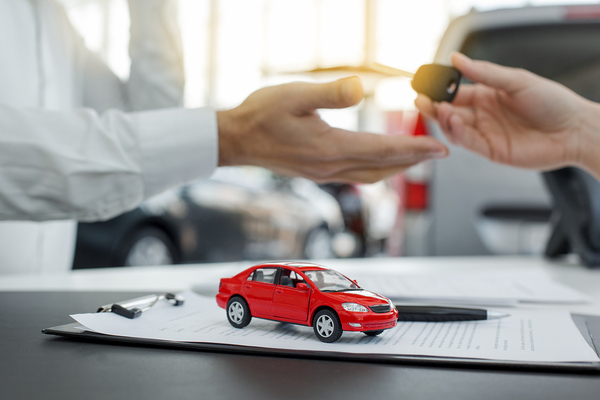Smart Ways to Evaluate a Fair Price for a Car
Smart Ways to Evaluate a Fair Price for a Car

Before you sign, what is a fair price?
What is a fair price for a car? Figuring out just what a car should cost can be a complicated question, whether you are buying new off the lot, kicking the tires of a used car in somebody’s driveway, or selling one yourself. But there are ways to determine a good value, buying or selling.
What Is A Car’s Value?
You have likely heard the term “Blue Book value.” What you may not know is that refers to the Kelley Blue Book, one of the key price guides for cars new and used. There are several others as well, such as National Auto Dealers Association (NADA) Guides, Autotrader, and Edmunds. Each has different standards and rules for evaluating a car, but consulting a couple of these guides will give you a good rough value with which to start.
Another factor is your car’s time on the road. For example, two of the same cars can be worth very different amounts of money depending on the mileage, accident record, whether your car is due for a major service milestone, and other factors. Even a thousand extra miles on the odometer can mean a chunk of the car’s value has vanished. Conversely, new brakes, major service upgrades, and being under some form of warranty can also drive up a car’s value.
The final factor, whether you are looking at a price being set or setting one, is speed. If there does not seem to be anything wrong with the car and it is priced below range, it is worth asking why, precisely, the seller is so eager to get it off the lot.

Did you get the best price?
Finding A Fair Price
Remember that a car’s price, in many cases, is simply a starting point. Bar certain situations, like “no-haggle” dealerships, few people get their asking price. It is really just a question of where on the range you want to go. So, if you are selling, consider pricing a little higher and giving yourself room to meet your real price.
When looking at a price, start with the data you have. For used cars, get the Carfax report and look up the car’s history. Accidents, flooding, and other problems should be on the car’s report. Also, keep an eye out for salvage titles. Cars with salvage titles are notorious for having problems and being a bad deal. For new cars, look at the Blue Book history and what new cars are selling for in your area. It is unlikely a new car is selling for the price on the sticker.
Next, look at the distinct factors surrounding each car. Has any work been done on it? Have there been any recalls? Is it about to hit any major milestones for being fixed? Have new tires, brakes, or other items been invested in the car before you looked at it? Has it been in any wrecks? If so, how was it repaired?
Pricing is as much an art as it is a science. What the “perfect price” is will vary from shopper to shopper and owner to owner. But it can be set, as long as you are committed to a fair and open negotiation process. Need help with pricing? Start with the research from CarFoundMe.


